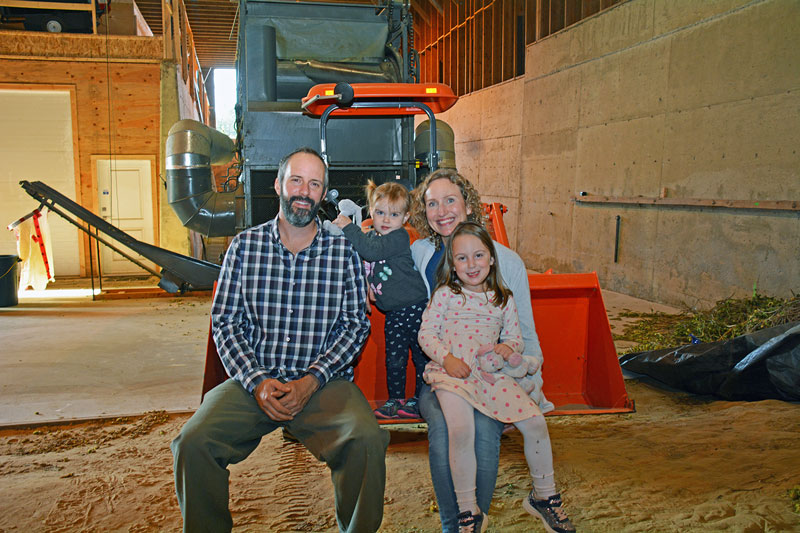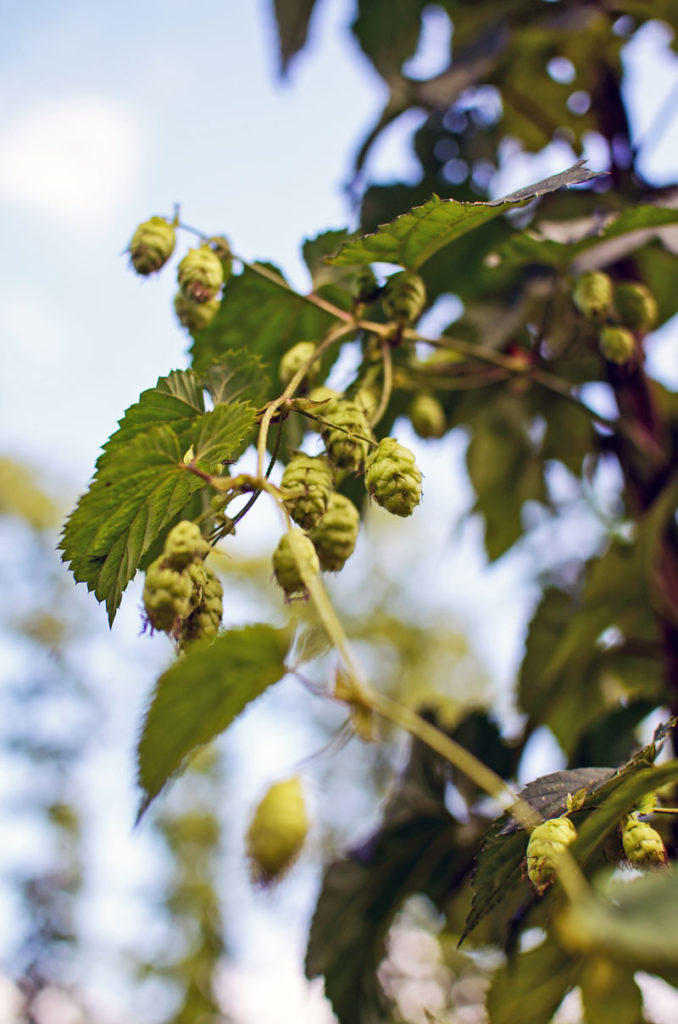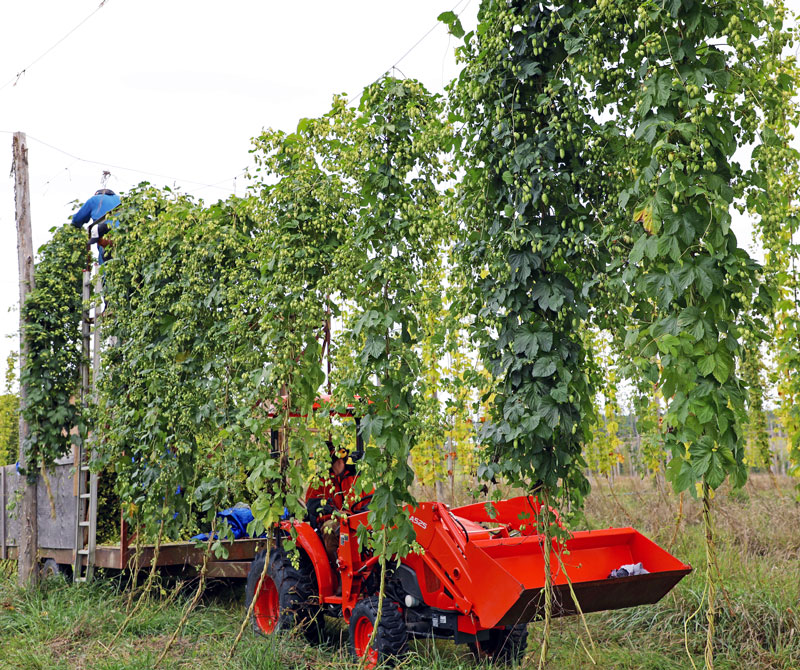By Morgan Cross
Photos by Peter McCully and Morgan Cross
When Steven Morrison and Debbie Mann moved from Squamish to Nanoose Bay in 2015, the 80 acres of farmland now home to Island Hopper Farms had been leased for hay production for 20 years. But the couple had their minds set on the plot at the bottom of the valley: they wanted to transform the hay field into something unique — and they wanted to make a life from it.
Four years later, Steven and Debbie run Vancouver Island’s only certified organic hops farm. The green bines, visible from Highway 19, stretch row-on-row and produce clusters of bright green cones (hops) every fall. These include an acre of bittering Nugget, three acres of aromatic Triple Pearl, along with more recently planted varieties, Chinook, Centennial and Cashmere.
Steven admits that neither he nor Debbie had farmed before starting Island Hopper Farms. Debbie grew up on the very farmland they call home now, and then spent many years away, involved in the fishing industry while Steven pursued a career in healthcare.
Inspired by recent hop farm start-ups and the expanding local brewing industry, Steven travelled to Yakima and then to Wisconsin to learn more about the industry. The couple jumped into the business as soon as they moved. Despite losing plants to a dry spell in the beginning, they have since watched their plants bounce back year-after-year.
“Once we get a few more varieties, I think we’ll be able to work with more local brewers and try to match what we’re growing with what they need,” Steven says.
Today, Steven and Debbie live with their two young daughters, Phoebe and Briar, close by the farm, invested in their vision of expanding the hobby farm to a full-time endeavour.
Each spring, Steven heads out to the farm with a team of four to begin the most arduous work of the year, training shoots to strings and fixing them to cables high above the ground. This will ensure a full summer of growth. By mid-September, the team return again for harvest, where the plants are fed into a hop-picking machine, and finally, the hops are dried and then pelletized and packaged — or, in special cases, transported fresh to local farms for brewing.
Fresh hops provide a different profile to beer than dried hops, which Debbie cites as another bonus of local farming, where transportation delays won’t spoil the cone.
The hops grown at Island Hopper Farms are used by several local breweries, including LoveShack Libations in north Qualicum, Courtenay’s Forbidden Brewing Co. and Longwood Brewery in Nanaimo. Island Hopper’s own are included in Longwood Brewery’s 2019 “Three Farms” hazy IPA, which includes, as the name suggests, hops from three different farms. And they have also sold their products further afield.
“We sold 1,500 lbs to Europe and Japan, which is great, but we’d love some more local interest,” Steven says. “We’d like for our hops to never leave the Island.”
Breweries are not the only end user. Their hops are used in a cider recipe at Valley Cider Co. in Duncan and have also been used as floral arrangements for island weddings and events. In addition to selling locally, Steven and Debbie plan to stick with the natural farming methods they’ve learned.
Instead of manually or chemically stripping the bottom few feet of leaves from the hop plants each year, as is traditionally required to prevent mildew, the couple has found that the deer in the area take the work upon themselves. They encourage biodiversity including the growth of wild flowers, roses, sweet alyssum, dill, yarrow, and catnip which attract beneficial insects. And when the farm experienced a bout of aphids earlier this spring, they waited to see what might happen – and were fortunate enough to watch natural predation do away with the pests.
“It’s important for us to be organic. We believe in the practices,” says Steven. “I find with organic, there’s more wait and see.”
Steven and Debbie look forward to continuing to discover healthy, natural ways to farm their hops, and hope to connect with their community even more in coming seasons.
“So far, all the farmers have been very open and welcome, and they share what they’ve learned with us,” Debbie says. “We want to do the same.”

